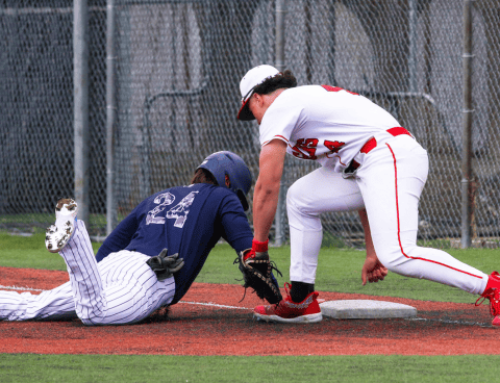White-Line Fever: The Power of Preparation
“White-line fever”—i.e., a decrease in performance once competition starts—is all too common in baseball. At one point or another, almost every ballplayer experiences a sudden and dramatic drop in performance between practice and games. The ability to fight white-line fever and remain consistent often separates the most successful players from the rest. Unlock your potential by learning how to become a more consistent athlete through mental preparation.
In our last article on white-line fever, we discussed a quick trick for reducing anxiety during competition. However, mental preparation should start well before you walk onto the diamond. Get yourself in the right mindset by creating a pre-performance routine. Your routine should consist of both mental and physical skills designed specifically for your personality, time allotment and degree of control. Let’s look at each of these factors.
Personality
You’re not the same person as any of your teammates, so your pre-performance routine should be unique. Some players like to be social when preparing for performance, while others prefer to keep their own counsel. Pre-performance routines should help you feel comfortable, so find one that fits your personality type, no matter what your teammates are doing.
Time Allotment
It’s nice to have plenty of time to prepare before a game, but we can’t always control our pre-performance timetable. Maybe your bus arrives late or your ankles need to be taped up. Since external factors can shorten your preparation time, it’s important to have a “go-to” preparation skill that you can turn to in a pinch. It’s usually just an abbreviated version of your longer and more thorough routine. Always expect the unexpected,and you’ll never be unprepared.
Control
It’s important to control your routine rather than letting it control you. Remember, a routine is designed to make you feel comfortable, so it shouldn’t turn into a superstition. If you’re unable to complete your pre-performance routine, your game doesn’t have to suffer. If your routine gets interrupted, rely on your skills and perform.
Learn more about developing your pre-performance routine.
Photo: Rachelanneseymour.wordpress.com
RECOMMENDED FOR YOU
MOST POPULAR
White-Line Fever: The Power of Preparation
“White-line fever”—i.e., a decrease in performance once competition starts—is all too common in baseball. At one point or another, almost every ballplayer experiences a sudden and dramatic drop in performance between practice and games. The ability to fight white-line fever and remain consistent often separates the most successful players from the rest. Unlock your potential by learning how to become a more consistent athlete through mental preparation.
In our last article on white-line fever, we discussed a quick trick for reducing anxiety during competition. However, mental preparation should start well before you walk onto the diamond. Get yourself in the right mindset by creating a pre-performance routine. Your routine should consist of both mental and physical skills designed specifically for your personality, time allotment and degree of control. Let’s look at each of these factors.
Personality
You’re not the same person as any of your teammates, so your pre-performance routine should be unique. Some players like to be social when preparing for performance, while others prefer to keep their own counsel. Pre-performance routines should help you feel comfortable, so find one that fits your personality type, no matter what your teammates are doing.
Time Allotment
It’s nice to have plenty of time to prepare before a game, but we can’t always control our pre-performance timetable. Maybe your bus arrives late or your ankles need to be taped up. Since external factors can shorten your preparation time, it’s important to have a “go-to” preparation skill that you can turn to in a pinch. It’s usually just an abbreviated version of your longer and more thorough routine. Always expect the unexpected,and you’ll never be unprepared.
Control
It’s important to control your routine rather than letting it control you. Remember, a routine is designed to make you feel comfortable, so it shouldn’t turn into a superstition. If you’re unable to complete your pre-performance routine, your game doesn’t have to suffer. If your routine gets interrupted, rely on your skills and perform.
Learn more about developing your pre-performance routine.
Photo: Rachelanneseymour.wordpress.com












